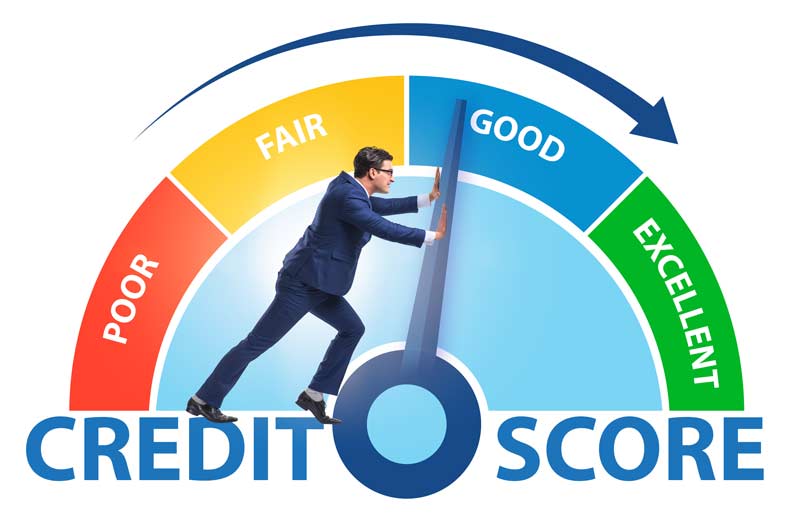If you are like most people you probably have a lot of different credit cards and maybe even a mortgage. These types of credit accounts typically do not affect your credit score in the same way that credit card debt does. The problem is that as you start to carry more debt the more potential you have to end up getting into trouble. Credit cards can impact your credit score if you go over your credit limit and miss a payment. Likewise, late payments can hurt your credit score as well.
There are also things to avoid to improve your credit score that pertain to not trying to get a new loan or credit card. While this may seem like an odd topic it is something that many people struggle with. You see when you apply for a new credit card or loan the bank or lending institution pulls your credit score. While it may not immediately affect your score, there is a good chance that at some point it will. One of the best things you can do to avoid this is to make sure that you do not get new credit cards or loans unless you can show them that you have had a recent credit history.
There are also a few other things to avoid to improve your credit score. Paying bills on time is a very important factor. Another thing that can negatively impact your credit score is going above and beyond the minimum amount required to open an account. One last thing to avoid to improve your credit score is making too many credit card transactions in a short period of time. You want to limit your number of transactions because it will reflect positively on your credit report.
1. Avoid Overspending – Your Monthly Budget
Whenever you’re handling your own finances, it’s vital to be certain that you’re caring for your monthly obligations. There are lots of applications out there that could allow you to satisfy your daily life with the aid of your mobile device. With various applications on the market, it is possible to be certain that you’re keeping a close watch on your spending each month.
2. Avoid Missing Loan Repayments
Another element that you should consider to avoid negatively affecting your credit score is to avoid missing repayments on your loan. Missing the due date of your credit card bill, not paying equated monthly instalments (EMIs) on time, has a negative impact on your credit history.
Even if you have missed a single payment or EMI, it will be reflected in the report. The credit report shows the number of days for which the bill or EMI remained unpaid after the due date.
If your credit score is low because you don’t pay your bills on time, be prompt with your payments. Once you make it a habit, it will take at least 6 to 8 months for your credit history to improve.
Whether it is the payments for a payday loan online loan or it is a mortgage repayment, these should be paid back on time to ensure that you are not missing the loan repayments and negatively impacting your credit score in the long term.
3. Don’t Increase Your Credit Card Limit Frequently
Though an improved limitation on your credit card provides you the flexibility of making more money, this may influence your credit rating if not used judiciously.
Lenders attempt to estimate the net value (assets minus liabilities) of a person prior to devoting financing.
Regular gain in the credit card limit can be regarded as indication of dependent on credit to manage expenses, something that raises a red flag to your creditor.
4. Not Having A Credit History
This might come as a surprise to many people but not having a credit history has a negative impact on your credit score.
Your credit score is determined on the basis of your loan repayment history, credit behaviour, credit utilisation limit along with other factors.
If you do not have a credit card or have not taken a loan in the past, then it might make it difficult for the lender to determine whether you fall in the high risk or low risk category.
5. Limit Your Credit Applications
The last way that you are able to improve your credit rating is to restrict your credit applications for various loans. When searching for a number of unique loans, this may damage your credit rating in the very long run and render you unable to borrow money from these. This is a problem in regards to boosting your credit score.
Rating and applying for loans and should thus be prevented when seeking to improve your credit rating. Which of these suggestions will you be using?







